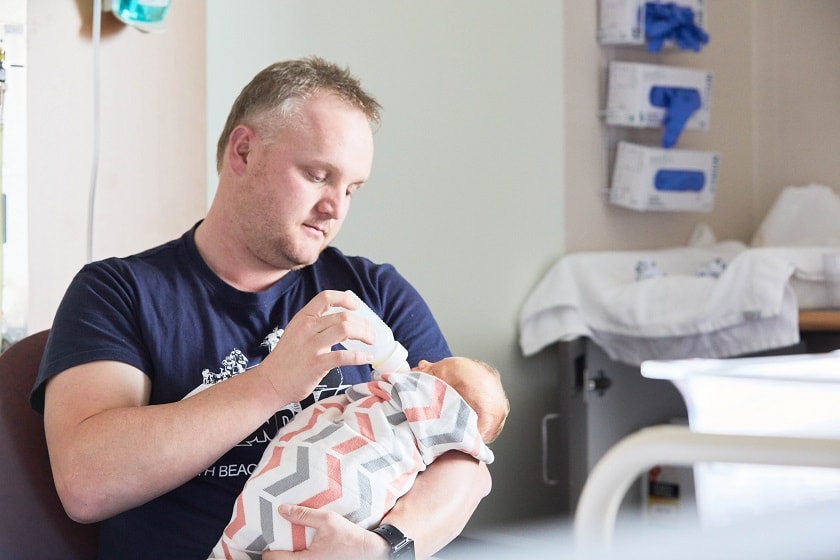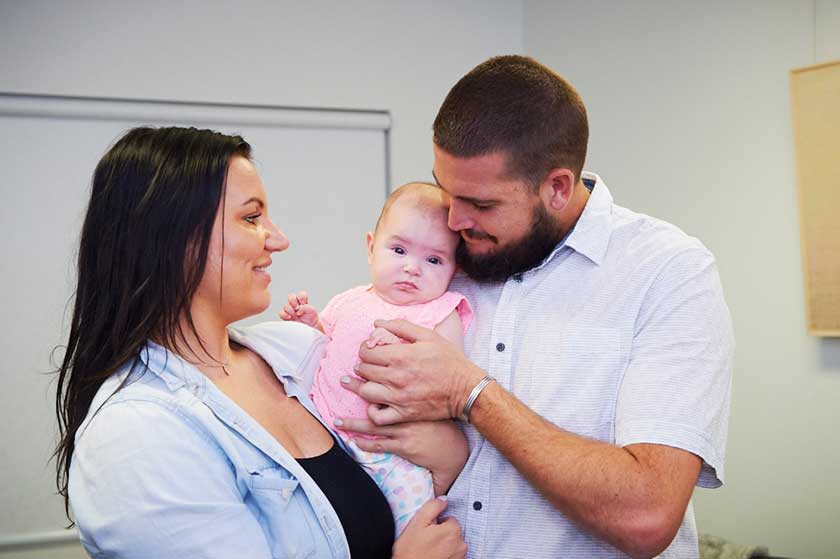Why do dads experience postnatal depression?
A partner’s pregnancy and early parenthood can be an exciting time but it also brings new responsibilities and unexpected challenges along the way, such as a traumatic birth or a baby with health problems.
As a parent you may be unprepared for the changes a baby can have on your life, such as sleep deprivation, less time to spend with mates and reduced quality time with your partner.
Having a baby can even bring up long unresolved issues from the past, that bubble to the surface with all the new emotion of becoming a parent.
In addition, new dads can sometimes feel added pressure to be the ‘provider’ for their new family.
This can result in consistently feeling sad, numb or withdrawn in the weeks and months after the birth of your baby and are good reasons to seek help, via GP referral to St John of God Raphael Services.
Finding the words to ask for help for postnatal depression
It can be really hard for anyone, but sometimes especially for men, to ask for help.
While you might be worried that people may think you aren't coping, seeking support if you are struggling is a sign of strength – of taking action so these feelings don’t get in the way of the development of a strong, lifelong bond between you and your child.
Finding the words to explain how you feel and learning some strategies to deal with them is the first step.
What are the symptoms of postnatal depression?
You might be experiencing postnatal depression if you are:
- having trouble sleeping
- eating and drinking much less or much more than usual
- much more angry or anxious than usual
- not enjoying life as much as you used to, are withdrawn or feeling bleak or numb.
For example, the sound of a baby crying can be a huge anxiety or anger trigger for some new dads, called ‘hearing shark music’ by the Circle of Security program.
Getting help for postnatal depression
Getting help early is the key to bonding well with your baby and moving towards a more enjoyable and fulfilling parenting experience.
The first step is to see your GP, who can refer you to the most appropriate service.
St John of God Raphael Services provides free or no out-of-pocket personalised counselling and support for mums, dads and families through the emotional challenges of pregnancy and early parenthood. As part of our comprehensive assessment we talk to clients about their current and past mental health.
If your partner seeks help, you are invited to come to their first appointment and we use this as an opportunity to check-in on you as well to check if you need emotional wellbeing support as well.
Quick tips
A key tip we suggest is for dads to take as much time off as possible during the time of the birth and afterwards to enhance the bond with your baby and to also help you and your partner to work ‘as a team’ to support each other.
Another important step for recovery is ensuring parents receive ample rest and nutrition.
Helplines
PANDA (Monday to Friday, 9.00am to 7.30pm AEST) Tel: 1300 726 306Beyondblue (24 hours/seven days a week) Tel: 1300 224 636
Mensline (24 hours/seven days a week) Tel: 1300 789 978







